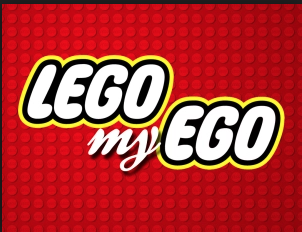There are countless patents approved each year in countries around the world but few of them affect as many people as a simple toy patent issued in Denmark in 1958. It was for a stud-and-tube coupling kit for plastic blocks which most of us fondly know as Lego.
The name of the company, Lego, was a contraction of two Danish words – LEgg and GOdt, meaning “play well.” According to the company website, it was later realized that in Latin the word means “I put together.” (I was unable to confirm this with the translation attempts I made, but we’ll come back to that.)
Most of us discovered Legos as young children, when we were given the colored little plastic blocks and told to create something with our imagination. Some of us only discovered them later in life when our children left them on the floor and we stepped on them with bare feet in the dark. Ouch!
One day it struck me that Legos are a powerful metaphor for life. You’re going to remember this and repeat it to others so pay attention.
Lego blocks can be arranged in a wide array of configurations. The vast majority of children playing with it will make buildings, flowers, cars, or similar simple designs. They may not look like a perfect architectural model, but that’s ok, it’s just a game. Depending on the child, they may grow out of Lego in a few years, or graduate to the next level.
Now, I’m not talking about becoming a Master Builder, who works for Lego and makes beautiful life-size models such as cars and giant animals (and about 12 bucks an hour), nor the Lego Certified Professionals who may do custom work for large corporations getting paid as much as $100,000 per artwork commissioned.
What I’m thinking of are the kids who move up from free-form Legos to kits in which there are step-by-step instructions and specific pieces to make the castle, cruise ship, town, or space shuttle shown on the box. These kids are able to follow directions and put in the effort and focus needed to create the item as planned. I was never one of those, by the way.
So why is this like life?
When you start out, you are told you can do anything you want. The problem is that it isn’t really true. Someone who is tone-deaf can’t be a singer no matter how much he wants, nor can a person who faints at the sight of blood become a surgeon. You could try those things but the results will be something less than spectacular.
Over time, we begin to realize that we’ve got a specific set of talents, abilities, and natural leanings. Instead of a bucket of Lego, we begin to see that we each have our own customized project to build, but the instruction paper seems to have been lost. It may take a lot of tedious work and trial and error before we figure out what came in the box but when we do we’ll have a functional and hopefully beautiful work to be proud of.
Remember that Latin phrase the company referred to? I don’t find that Lego means “I put together,” but I, or I will, in Latin is “ego.” Yes, the same ego referred to as the fixation on the self. When someone declares, “I will do this,” there’s a certain amount of arrogance in play because who is to say he will manage to succeed?
When we decide that we are the masters of our own destiny who can choose to be or do whatever we want, we’re really being like those children with a plethora of different Lego blocks making imperfect structures and lop-sided creations. It’s time to grow up.
What we really need to do is take a good, long look at ourselves and inventory the pieces the Manufacturer gave us to work with. By doing that we’ll start to get a picture of what we’re supposed to be. Not every boy will be a Rosh Yeshiva, and that’s fine. Not all of Yaakov Avinu’s children sat and learned Torah full-time. Not every person will be a doctor, lawyer or gourmet chef; some will be teachers, artists, car-service drivers or sanitation workers. But we each have a final product and form for which we have all the right pieces.
There are so many ways to be a productive member of society and Klal Yisrael, and they are not all the same. There is imbued in nature a need for various types of people. Some are serious and analytical. Some are light-hearted and friendly. Still others are a mixture of the two with many different interests.
Our job is to get rid of the ego telling us we need to be the greatest ‘X’ in the world, and start figuring out what the Master Designer intended us to be and what role He wants us to play. If we do it right, then no matter what the form is, the finished product will be a masterpiece.
© 2018 – All Rights Reserved
Did you enjoy this column? Feedback is welcome and appreciated. E-mail info@JewishSpeechWriter.com to share your thoughts. You never know when you may be the lamp that enlightens someone else.






